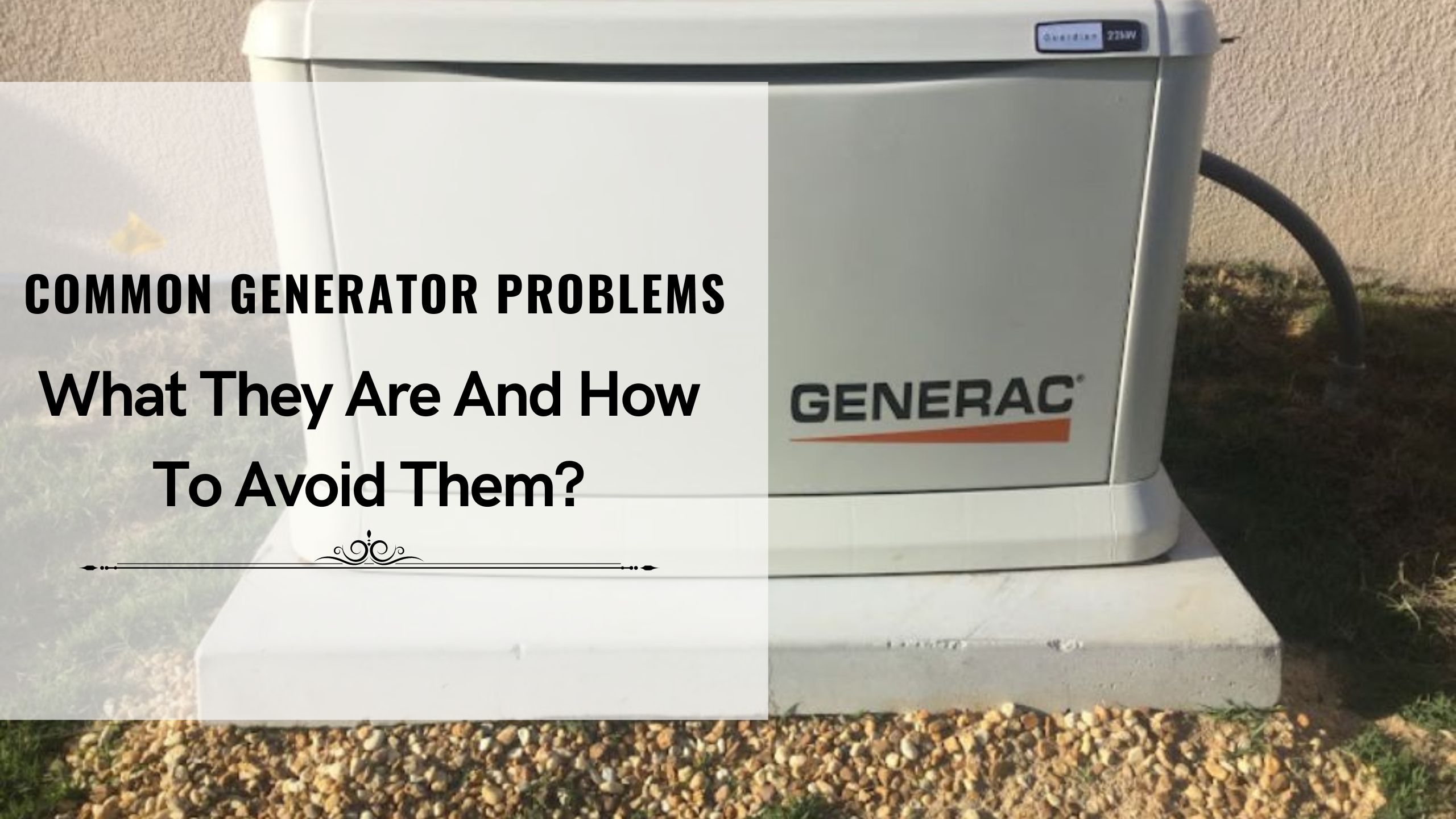Many people don’t know much about generators, except that they provide power during a power outage. However, there are many common generator problems that can occur, and it’s important to be aware of them in order to avoid them. In this blog post, we’ll discuss some of the most common problems your generator can have and what you can do to prevent them. Stay safe and stay powered!
Let’s get started with generator troubleshooting!
Generator Problems Can Occur When There Is a Fault in the Electrical System
Like any other type of machinery, home generators can sometimes experience problems. One such problem is a fault in the electrical system. This can occur for a number of reasons, such as loose wiring or a faulty circuit breaker. If you suspect that there is a problem with your home generator’s electrical system, it’s important to have it checked by a qualified technician as soon as possible. Otherwise, you could end up with a generator that doesn’t work when you need it most.
Another Potential Problem Could Be Low Oil Level
When your home generator is not working properly, it can be frustrating and even dangerous. While there are many potential causes of generator problems, one of the most common is a low oil level. If the oil level in your generator is too low, it can cause the engine to seize up, which can lead to expensive repairs. If you suspect that your generator might be low on oil, be sure to check the level as soon as possible and top off the oil if necessary.
Other Common Generator Problems Include Clogged Air Filters And Dirty Fuel Filters
One of the other common problems is a clogged air filter. If the air filter gets too dirty, it can restrict air flow and cause the engine to overheat. Another problem that can occur is a dirty fuel filter. If the fuel filter gets clogged, it can prevent the engine from getting enough fuel and cause it to stall. Both of these problems can be avoided by regularly checking and cleaning the air filter and fuel filter.
What To Do If Your Generator Does Experience A Problem
If your generator does experience a problem, the first thing you should do is check the fuel supply. If the fuel tank is empty, fill it up and try starting the generator again. If the generator still won’t start, check the oil level and add more oil if necessary. Once you’ve done that, check the air filter to see if it needs to be cleaned or replaced. If none of these things fix the problem, you may need to call a qualified technician to repair your generator.
Ensure your Generator is Repaired by a Qualified Technician At Least Once A Year
A home generator can be a lifesaver during a power outage, but it’s important to make sure that it’s in good working order. That’s why it’s recommended to have your generator repaired or serviced by a qualified technician at least once a year. During a service appointment, the technician will inspect the generator and perform any necessary repairs or maintenance. This can help to prevent problems in the future and keep your generator running smoothly. So if you want to be prepared for the next power outage, make sure to schedule an appointment with your local home generator repair company.
How To Avoid Generator Problems In The Future
As home generators become more popular, it’s important to be aware of the potential problems that can occur.
- One common issue is generator performance in cold weather. To avoid this, keep your generator well-maintained and make sure that the area around it is clear of snow and ice.
- Another potential problem is generator surge. This can be caused by a number of factors, including high winds or electrical surges from the grid. To protect your home from generator surge, invest in a surge protector.
- Finally, be sure to regularly test your home generator to ensure that it’s working properly. By following these simple tips, you can avoid and easily fix generator problems in the future.
Generator Safety Tips For Homeowners
Home generators can be a great way to provide backup power in the event of an outage. However, it is important to follow some basic safety tips to ensure that they are used safely.
- First, always read the manufacturer’s instructions before operating the generator. This will help you to understand how it works and how to use it properly.
- Second, make sure that the generator is set up in a well-ventilated area. Generators produce harmful fumes, so it is important to ensure that they are not used indoors or in enclosed spaces.
- Finally, never refuel the generator while it is running. Always shut off the engine and allow it to cool down before adding more fuel.
By following these simple tips, you can ensure that your home generator is used safely and effectively.
To Sum Up
As you can see, there are a number of common generator problems that can occur. It’s important to be aware of them and take steps to prevent them from happening. If you experience any of these problems, don’t hesitate to call Genstar for generator troubleshooting and repair services. We’ll help get your generator up and running again in no time!

